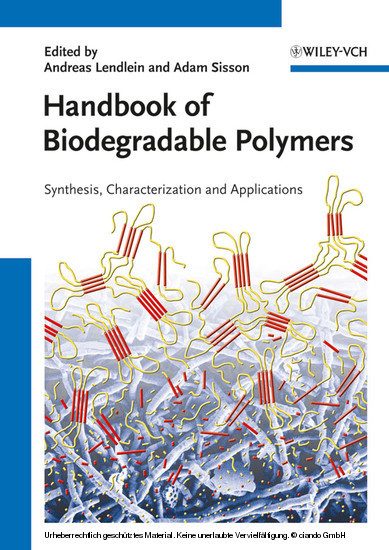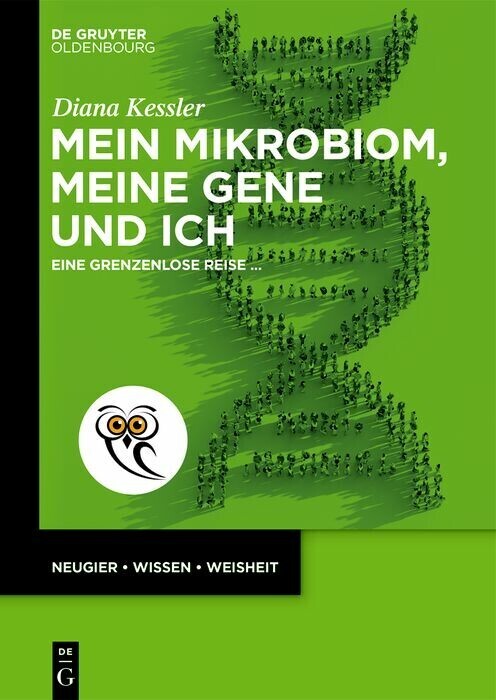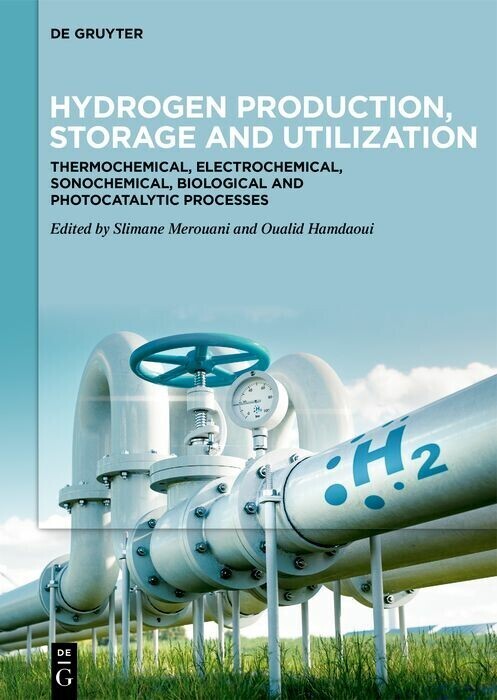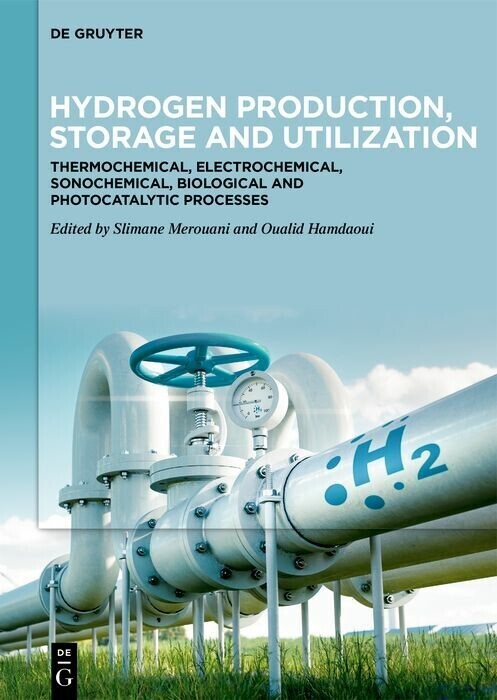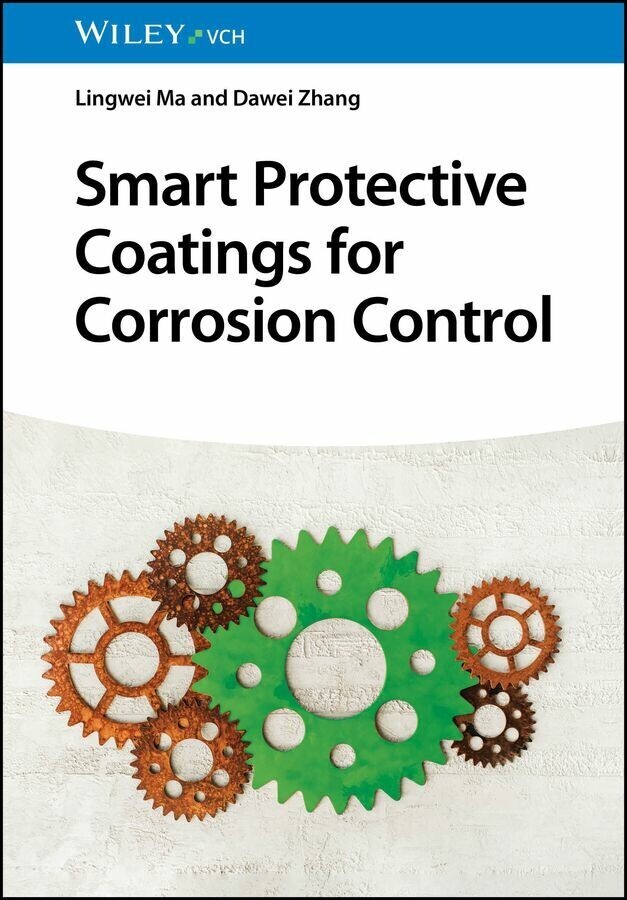Handbook of Biodegradable Polymers
Isolation, Synthesis, Characterization and Applications
Handbook of Biodegradable Polymers
Isolation, Synthesis, Characterization and Applications
A comprehensive overview of biodegradable polymers, covering everything from synthesis, characterization, and degradation mechanisms while also introducing useful applications, such as drug delivery systems and biomaterial-based regenerative therapies. An introductory section deals with such fundamentals as basic chemical reactions during degradation, the complexity of biological environments and experimental methods for monitoring degradation processes.
The result is a reliable reference source for those wanting to learn more about this important class of polymer materials, as well as scientists in the field seeking a deeper insight.
Andreas Lendlein is Director of the Institute of Polymer Research at Helmholtz-Zentrum Geesthacht in Teltow, Germany, and serves on the Board of Directors of the Berlin-Brandenburg Center for Regenerative Therapies, Berlin. He is Professor for Materials in Life Sciences
at University of Potsdam and Professor in Chemistry at the Freie Universitat Berlin as well as member of the medical faculty of Charite University Medicine Berlin. His research interests in macromolecular chemistry and material science are polymer-based biomaterials with special emphasis given to multifunctional materials, stimuli-sensitive polymers, especially shape-memory polymers, and biomimetic polymers. Furthermore, he explores potential applications of such biomaterials in biofunctional implants, controlled drug delivery systems, and regenerative therapies. He completed his habilitation in Macromolecular Chemistry in 2002 at the RWTH Aachen University, worked as a visiting scientist at the Massachusetts Institute of Technology, and received his doctoral degree in Materials Science from Swiss Federal Institute of Technology (ETH) in Zurich in 1996. Andreas Lendlein received more than 20 awards for his scientific work, and his achievements as an entrepreneur including the BioFUTURE Award in 1998, the 2000 Hermann-Schnell Award and the World Technology Network Award in the category Health & Medicine in 2005. He has published more than 220 papers in journals and books, and is an inventor of more than 250 published patents and patent applications.
Adam Sisson received his PhD in Supramolecular Chemistry in 2005 under the guidance of Professor Anthony Davis at the University of Bristol, UK. Following this, he moved into the group of Professor Stefan Matile at the University of Geneva, Switzerland, to conduct postdoctoral
research in self-assembling nanomaterials. In 2007 he embarked upon research into polymeric nanogels as an Alexander von Humboldt Stiftung sponsored research fellow with Professor Rainer Haag at the Free University of Berlin, Germany. Since 2010 he is leading a Junior research group 'Cell and Tissue Specific Materials' at the Berlin-Brandenburg Center for Regenerative Therapies, Helmholtz-Zentrum Geesthacht in Teltow, Germany. His research interests focus on studying and manipulating the interactions of synthetic materials with various
biological moieties in a range of applications.
The result is a reliable reference source for those wanting to learn more about this important class of polymer materials, as well as scientists in the field seeking a deeper insight.
Andreas Lendlein is Director of the Institute of Polymer Research at Helmholtz-Zentrum Geesthacht in Teltow, Germany, and serves on the Board of Directors of the Berlin-Brandenburg Center for Regenerative Therapies, Berlin. He is Professor for Materials in Life Sciences
at University of Potsdam and Professor in Chemistry at the Freie Universitat Berlin as well as member of the medical faculty of Charite University Medicine Berlin. His research interests in macromolecular chemistry and material science are polymer-based biomaterials with special emphasis given to multifunctional materials, stimuli-sensitive polymers, especially shape-memory polymers, and biomimetic polymers. Furthermore, he explores potential applications of such biomaterials in biofunctional implants, controlled drug delivery systems, and regenerative therapies. He completed his habilitation in Macromolecular Chemistry in 2002 at the RWTH Aachen University, worked as a visiting scientist at the Massachusetts Institute of Technology, and received his doctoral degree in Materials Science from Swiss Federal Institute of Technology (ETH) in Zurich in 1996. Andreas Lendlein received more than 20 awards for his scientific work, and his achievements as an entrepreneur including the BioFUTURE Award in 1998, the 2000 Hermann-Schnell Award and the World Technology Network Award in the category Health & Medicine in 2005. He has published more than 220 papers in journals and books, and is an inventor of more than 250 published patents and patent applications.
Adam Sisson received his PhD in Supramolecular Chemistry in 2005 under the guidance of Professor Anthony Davis at the University of Bristol, UK. Following this, he moved into the group of Professor Stefan Matile at the University of Geneva, Switzerland, to conduct postdoctoral
research in self-assembling nanomaterials. In 2007 he embarked upon research into polymeric nanogels as an Alexander von Humboldt Stiftung sponsored research fellow with Professor Rainer Haag at the Free University of Berlin, Germany. Since 2010 he is leading a Junior research group 'Cell and Tissue Specific Materials' at the Berlin-Brandenburg Center for Regenerative Therapies, Helmholtz-Zentrum Geesthacht in Teltow, Germany. His research interests focus on studying and manipulating the interactions of synthetic materials with various
biological moieties in a range of applications.
| ISBN | 9783527635825 |
|---|---|
| Artikelnummer | 9783527635825 |
| Medientyp | E-Book - ePUB |
| Copyrightjahr | 2011 |
| Verlag | Wiley-VCH |
| Umfang | 440 Seiten |
| Sprache | Englisch |
| Kopierschutz | Adobe DRM |

